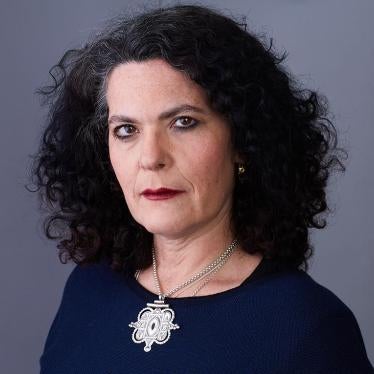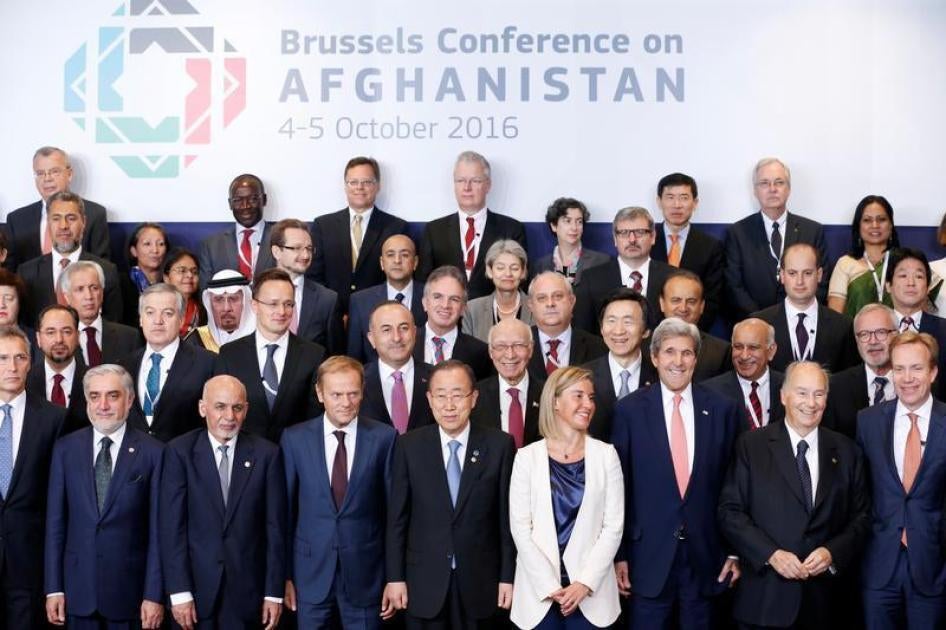For nine years, I have watched as donors have come together every couple of years to discuss how much they are prepared to invest in Afghanistan’s future. The latest donor conference both surprised and depressed me. Aid funds are still rolling in, but the worsening condition in the country—and the level of denial about that—illustrate the struggle that lies ahead for civil society.
The Brussels Conference on Afghanistan, on 4-5 October, felt like a parallel reality to Afghanistan. In the comfortable halls of the EU, delegates sipped cappuccinos and nibbled on cakes in between donor speeches drenched in platitudes and the upbeat tone of diplomacy. Back in Afghanistan, meanwhile, the Taliban took back partial control of Kunduz, taunted the government via social media, and waged continuing battles on several fronts. Civilian casualties continue to spiral upward.
Refugees continue to flee but with a feeling that doors are closing everywhere. Pakistan and Iran are pushing back hundreds of thousands of Afghan refugees. Well over a million people are internally displaced.
The conference raised US $15.2 billion in aid to be spent over the next four years. That’s a staggering amount of money. So for the millions of Afghans whose livelihoods and abilities to feed their children in one way or another depend on continuing aid, this is amazing and potentially life-saving news. This amount was not a foregone conclusion; many feared that aid would drop precipitously as international forces withdrew. But the aid keeps flowing, most likely due, sadly, to increasing awareness of the consequences of chaos in Afghanistan, as illustrated by the growing flow of Afghan refugees reaching the West and the foothold ISIS has gained in the country.
There was some good news for civil society. A well-attended session on Afghan women, held the day before the main conference, was billed as part of the conference and held at the EU, rather than being shuffled across town. The 10 Afghan civil society participants all received visas and were able to attend—which has sometimes been a struggle in the past. Two spoke at the conference, though for only two minutes each. Chief Executive Abdullah Abdullah, joined by senior UN, UK and other government officials, met for almost two hours with the 10 Afghan civil society representatives and 10 from international NGOs to hear their concerns.
These might seem like small victories, but each of these issues has been hard-fought.
But there were disappointments. The conference was overshadowed by an unsavoury deal signed days earlier between the European Union and the Afghan government to facilitate deportation of Afghan migrants from Europe. This deal commits the Afghan government to accepting unlimited numbers of Afghans being deported back to Kabul if European countries reject their asylum claims.
Civil society groups regularly witness the danger and misery awaiting deportees in Afghanistan—and the extremely limited capacity of families and the Afghan government to provide support to deportees. One of the most compelling moments at the conference was a hurried last minute rewrite of the speeches the two Afghan civil society spokespeople delivered to the conference. The speakers pointedly disagreed with the Afghan government’s capitulation on this issue, calling instead for a complete suspension of deportations of Afghans. Whilst suspension is unlikely, their courage in openly criticizing the deal was an important signal to donors that civil society organizations will be watching and exposing the human cost of this misguided agreement.
There was other bad news. Aside from donor pledges, the other main output of the conference was benchmarks to which the Afghan government committed in return for the $15.2 billion in aid. The benchmarks reflected President Ghani’s focus on economic development but excluded concrete steps on important issues such as human rights, extractives and reducing corruption. Three benchmarks address women’s rights, but they offer specialized court sessions and more female civil servants, while dodging hard questions such as whether women will participate in peace negotiations, and how many people are being prosecuted for violence against women.
Many civil society representatives felt that the government’s efforts to reach out seem motivated only by a desire to be seen as consultative. What is needed is a genuine wish for collaboration. The civil society representatives asked Dr. Abdullah for more formal access to government, including regular and ongoing channels for dialogue; he promised to consider this.
It’s going to be a long hard winter in Afghanistan. Civil society representatives, seeing every day what people in Afghan villages and slums are suffering through, are often the only people at events like the Brussels Conference who are prepared to break through protocol and tell the truth about how desperate the situation is.
In Brussels, civil society had a foot in the door, and a crack through which to shout. But they will need to fight just to keep that, and to fight even harder to push the door wider. Many lives depend on their willingness to do so.
The Afghan government needs to do more to make civil society a genuine partner. Meanwhile donors should place more value on the grass-roots perspective civil society organizations offer about life on the ground in Afghanistan.










